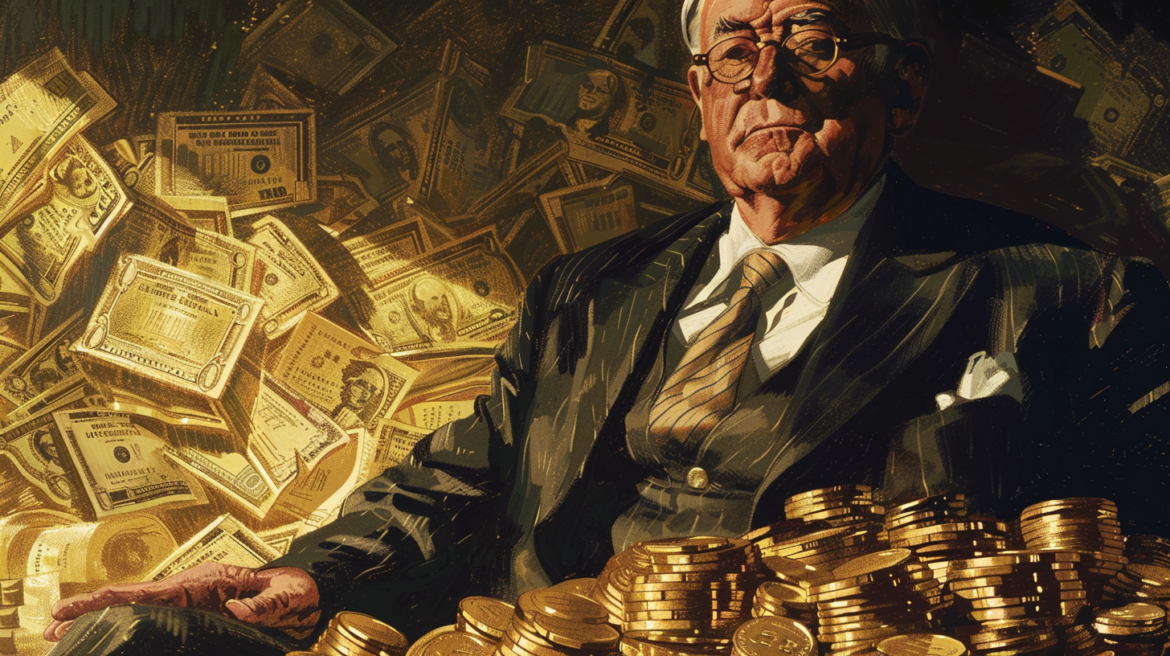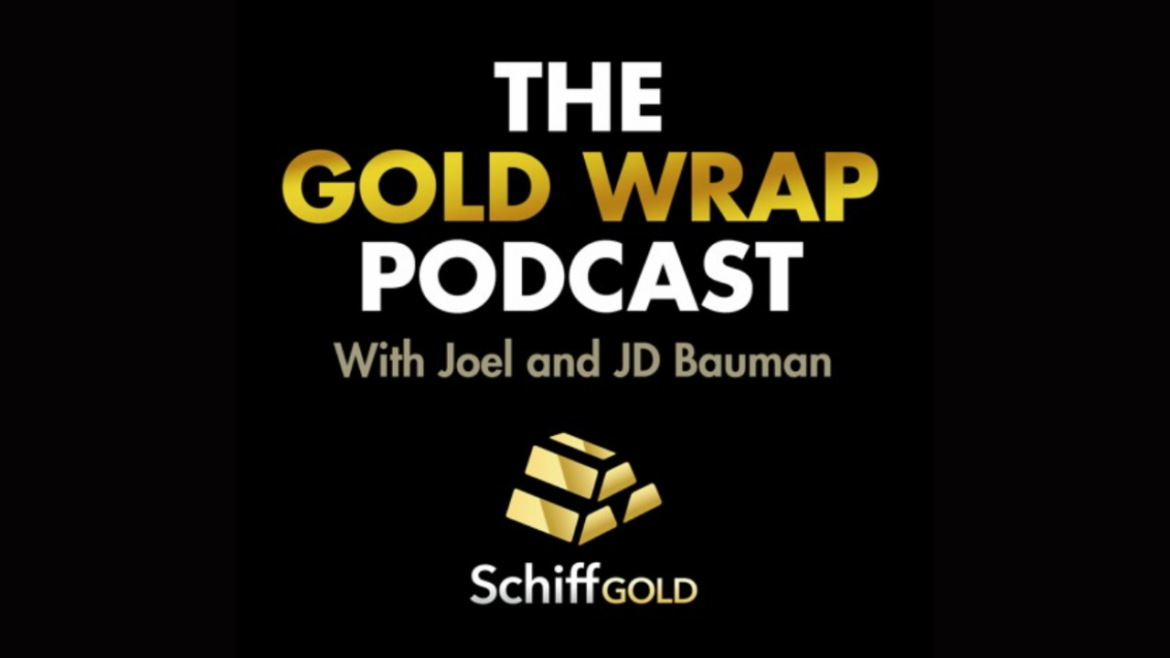Precious metals are apparently waking up. And here is where you can find the best deals.
Site:
Precious metals news
U.S. Treasury Secretary Janet Yellen has issued a stern warning to China, signaling that the U.S. will not tolerate the destruction of its emerging industries due to an influx of Chinese imports. During her four-day visit aimed at discussions on excessive industrial capacity, Yellen emphasized that the U.S. aims to prevent a scenario akin to the "China shock" of the early 2000s, which resulted in the loss of approximately 2 million American manufacturing jobs. While she stopped short of proposing new tariffs or trade measures against China's substantial state support for sectors like electric vehicles and solar panels, Yellen criticized China's overproduction and its impact on global markets. Her visit underscores a significant concern over China's export practices and their potential threat to U.S. and other nations' industries.
Gold has been experiencing a notable uptrend, now trading at record levels with predictions suggesting it could reach $4,000 per ounce. This optimistic forecast comes after gold demonstrated a solid bullish reversal, notably overcoming the $1,940 mark without dipping below $1,900, which signaled a buying opportunity. Despite a period of stagnation following an inability to sustain a close above $2,100, a bullish reversal in late February marked a significant improvement in gold's technical outlook. The close above $2,200 has further solidified projections that gold prices could soar to between $3,600 and $4,000, backed by its long-term bullish base and higher high-level consolidations.
This week Peter recaps another stellar week for precious metal. He also discusses Friday’s jobs report, commodity prices, and Bitcoin.
As the Democratic Party has shifted away from its traditional base of working-class and middle-class Americans, to an increased reliance on college professors, students, and highly educated but low-paid professions, such as social workers, a new policy has risen to prominence: student loan forgiveness.
On April 5 1933, Franklin D. Roosevelt abandoned the gold standard, wielding questionable legal power amidst America's dire economic depression. His whimsical approach to monetary policy, including coin flips and lucky numbers, unleashed unprecedented inflation and price increases that have since amounted to nearly 2500%. Our guest commentator explores this tragic history and the legacy of enduring economic turmoil that still plagues America today.
 METALS & ENERGY UPDATE APR 7th: Continued Large Silver Flows Into European Silver ETFs
METALS & ENERGY UPDATE APR 7th: Continued Large Silver Flows Into European Silver ETFsApril 7, 2024
With the silver price hitting a 2-year high, there continues to be very strong investment demand through European Silver ETFs. There looks to be another large inflow of silver into the European SSLN Silver ETF...
Russia's central bank has announced a shift from its previous stance of purchasing gold at a fixed price, moving to negotiate prices with commercial banks starting April 8, due to significant market changes. This decision alters the March 25 declaration of buying gold at a fixed rate of 5,000 roubles per gram through June 30. The adjustment comes as the rouble has appreciated notably against the dollar, increasing the fixed price's value from about $52 to $63, despite stable international gold prices around $60 a gram ($1,900 an ounce). This change is noteworthy for Russia, a leading gold producer, especially since the country's gold refiners have been excluded from the London market, the global hub for gold trading, following military actions in Ukraine.
Incremenum shares the company's monthly gold compass report.
The BRICS nations (Brazil, Russia, India, China, and South Africa) are significantly increasing their gold reserves, making them the leading gold buyers of 2023, according to the World Gold Council. China has added 225 tons of gold, with the other member countries also making substantial purchases. This accumulation is part of a strategy to potentially back a new BRICS currency with gold, challenging the dominance of the US dollar. Russia, in particular, has announced plans to double its gold and foreign currency reserves from April 5 to May 7, 2024, as confirmed by Finance Minister Anton Siluanov. This move aligns with BRICS' broader goal to shift away from using the US dollar for international transactions, a change that could have significant implications for the US economy.
Gold is currently entering the early phase of a bull market anticipated to extend into the 2030s, marking a significant turning point reminiscent of the breakout in 2005 that led to a six-year period of substantial growth. This optimistic forecast suggests that gold prices could soar to a long-term target of $8,000 to $10,000 by the end of the 2030s. This prediction underscores the strong momentum and positive outlook for gold as an investment, drawing parallels with past cycles of robust growth and investor interest in the precious metal.
Zimbabwe has announced the introduction of a new currency, the Zimbabwe Gold (ZiG), which will be backed by gold, other precious metals, and foreign currencies. This initiative, announced by Central Bank Governor John Mushayavanhu, aims to bring "simplicity, certainty, and predictability" to the nation's financial system. The transition to ZiG starts from April 5, with an initial interest rate set at 20%, a significant reduction from the previous rate of 130%. This change comes in response to the local dollar's drastic devaluation and soaring annual inflation, which reached 55% in March. The central bank's decision follows extensive discussions with the finance ministry, aiming to address the currency's sharp decline and the challenges in providing change in foreign currency transactions.
The analysis below covers the Employment picture released on the first Friday of every month. While most of the attention goes to the headline number, it can be helpful to look at the details, revisions, and other reports to get a better gauge of what is really going on.
In February, the data showed that Yellen was making a big bet that long-term rates would not stay elevated for long. This was demonstrated by the volume of short-term debt issuance. The Treasury was willing to pay higher rates to keep the maturity of the debt shorter.
On Friday, gold prices soared, setting a new record high amidst a mix of factors, including anticipation of U.S. interest rate cuts, speculative purchases, and robust buying by central banks. Despite the strong job growth reported in March in the U.S., the momentum behind gold has propelled it to its third consecutive week of gains. The price of spot gold rose by 1.3% to $2,320.04 per ounce, peaking at $2,344.50 earlier in the day. This week alone, gold has increased by 3.8%, signaling a sustained upward trend.
The U.S. economy added an impressive 303,000 jobs in March, substantially outpacing the predicted 200,000, leading to a reevaluation of the Federal Reserve's interest rate trajectory. This robust job growth, detailed in the Labor Department's report, has lessened expectations for an imminent rate cut, with the likelihood of a reduction in June now down to 54.4%. As a result, the dollar strengthened, and U.S. Treasury yields climbed, reflecting investor anticipation that the Fed may delay easing monetary policy due to the strong labor market indicators.
 March Jobs Surge Beats Forecasts, But Wage Growth Sparks Inflation Concerns
March Jobs Surge Beats Forecasts, But Wage Growth Sparks Inflation ConcernsApr 5, 2024 - 10:48:20 EDT
The latest March jobs report outperformed expectations, adding 303,000 jobs to the U.S. economy, significantly above the forecasted 214,000, and lowering the unemployment rate to 3.8%. In a discussion on Yahoo Finance, experts Dana Peterson and Brian Levitt analyze the implications for the Federal Reserve's interest rate decisions, emphasizing the double-edged sword of wage growth. While wages remain elevated at 4% compared to the pre-pandemic average of just under 3%, indicating potential inflationary pressures, there is a silver lining with the slowdown in housing inflation. Nonetheless, the persistent high wage growth poses challenges to controlling consumer inflation.
Nicky Shiels, the head of metals strategy at MKS PAMP, has revised the gold price forecast upward for 2024, sparking curious inquiries from the market on whether gold could mimic the recent explosive price surge seen in cocoa. Cocoa prices skyrocketed, doubling due to poor harvests in major producing countries, Ivory Coast and Ghana. This comparison arises as gold, despite its broader market and liquidity, achieved record highs in five consecutive trading sessions. Investors are increasingly drawn to gold, viewing it as a reliable asset for wealth preservation amidst uncertainties.
With gold hitting yet another awe-inspiring all-time high in the wake of Powell’s remarks reassuring markets (more or less) to expect rate cuts in 2024, a few analysts are pointing out risk factors for a correction — so is there really still room to run?
As gold prices ascend, nearing record highs with a more than 20% increase since last October, gold mining stocks remain unexpectedly stagnant. This discrepancy puzzles many, suggesting that either mining stocks must rise to match gold's momentum or gold prices must adjust downward. Leading the optimistic perspective, Christopher Mancini of the Gabelli Gold Fund, emphasizes that gold stocks are bound for an uptick, given they haven't yet reflected the rising gold prices. Despite production costs for mining companies surging by 35% since early 2020, mainly from increased labor expenses, there's a strong belief in the sector's potential for growth if gold continues its upward trajectory.
JD and Joel discuss gold's new record high and silver's tear upwards, an earthquake in NYC, headline jobs numbers, and Peter's most recent podcast.










